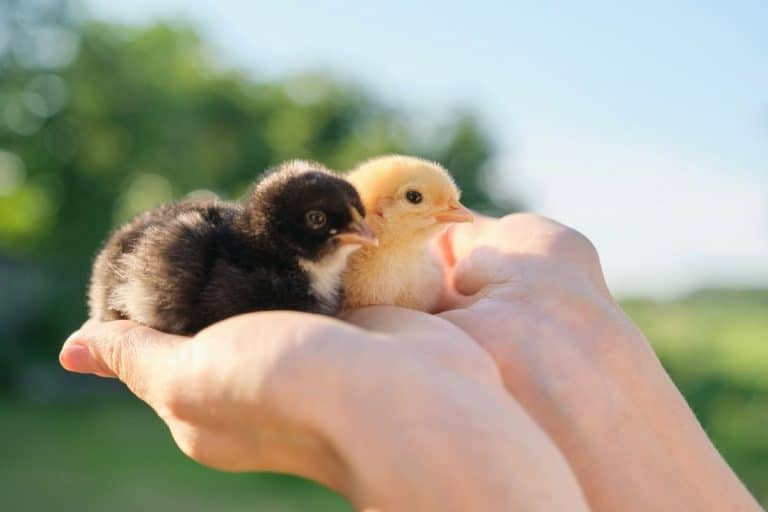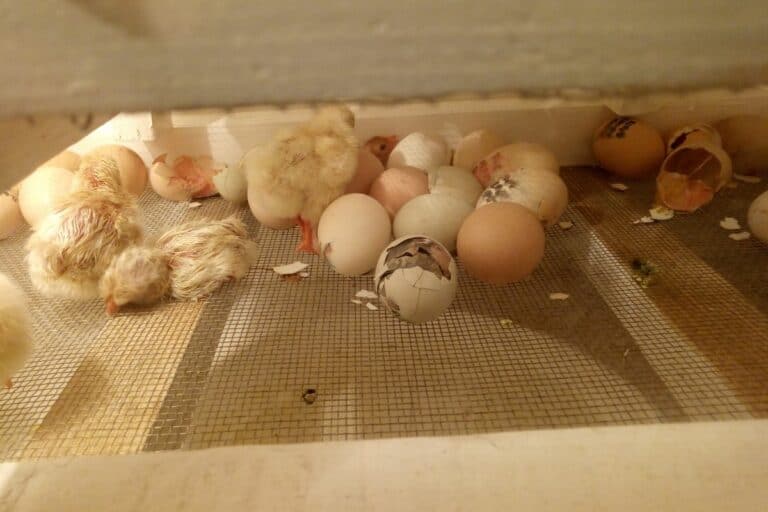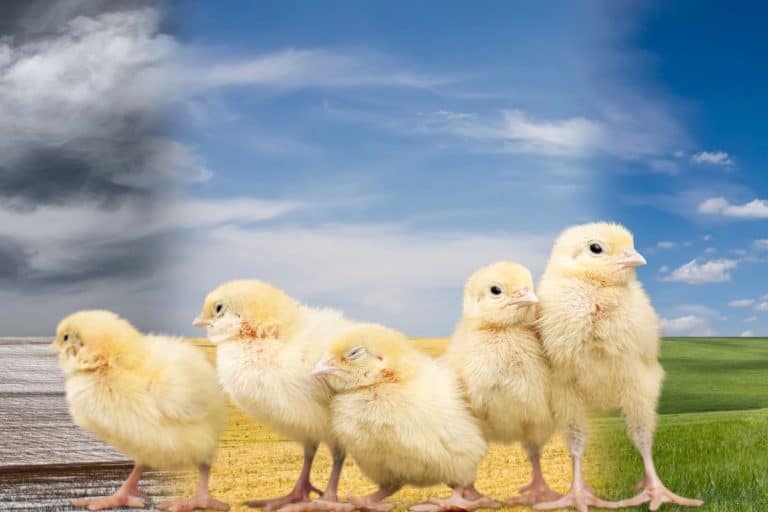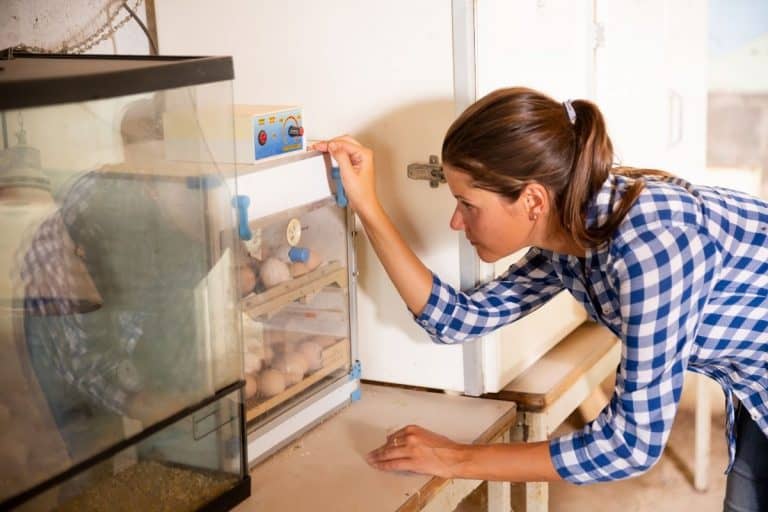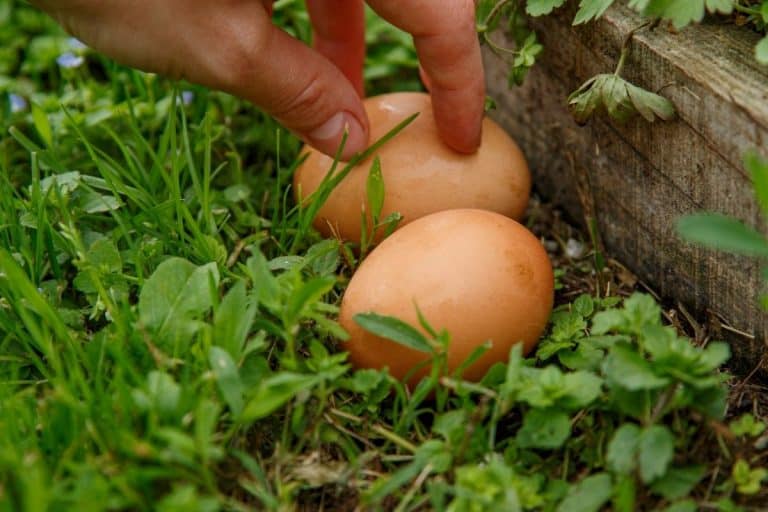What Should The Level Of Humidity Be For Incubating Eggs?
Hatching eggs in an incubator is not as simple as it appears because it is dependent on several factors, one of which is humidity, as it has a significant impact on how well eggs hatch in incubators.
Overall, the humidity in the incubators is dependent on the stage of the eggs. Initially, the humidity in the incubator should be between 50 and 55 percent, but for the last few days, primarily days 19 to 21, it should be raised to 65 to 70 percent.
If you’re new to egg hatching or don’t know anything about ideal humidity levels in the incubator and how to measure them, you’ve come to the right place. Read on to learn everything you need to know about humidity and incubating eggs.
Hey chicken buddies: Quick heads-up before going further! I've put together a list of stuff I use and love for my flock. If you're curious about what keeps my hens happy, click here to find out.
What Is The Best Humidity To Incubate Eggs?
For the first 18 days, the humidity level for incubating eggs should be between 50 and 55 percent, and for the final 3 days, it should be between 65 and 70 percent.
The increased humidity during the last three days (Day 19 to 21) helps to soften the shell membrane, making it easier for the chick to pip and come out of it.
During incubation, humidity is essential to a chick’s development, and any variations in the humidity levels during this time can be life-threatening to the chick. Fluctuations in humidity can result in weak and malformed chicks that are either born dead or die soon after hatching.
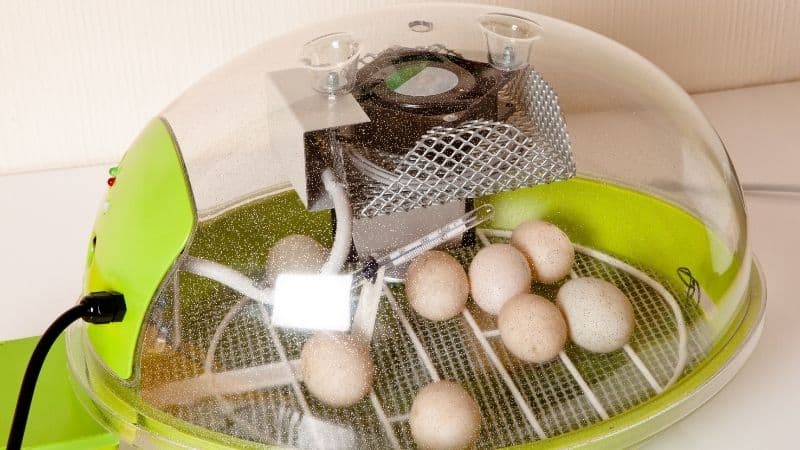
Wait, I have some recommendations for you!
Before you go any further, I want you to take a look at some of the recommendations I've handpicked for you. I think these are essential items you should have for your chickens flock. You can check them out and buy them directly from Amazon.
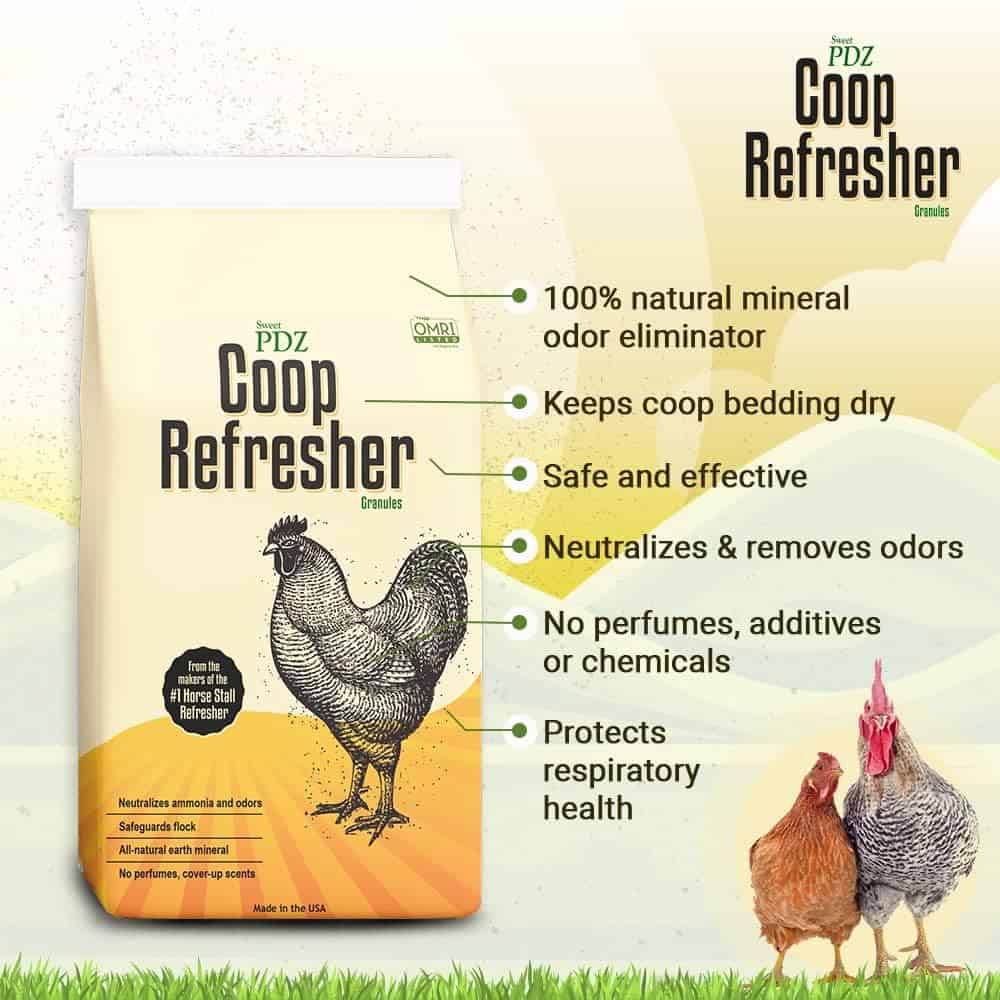 | 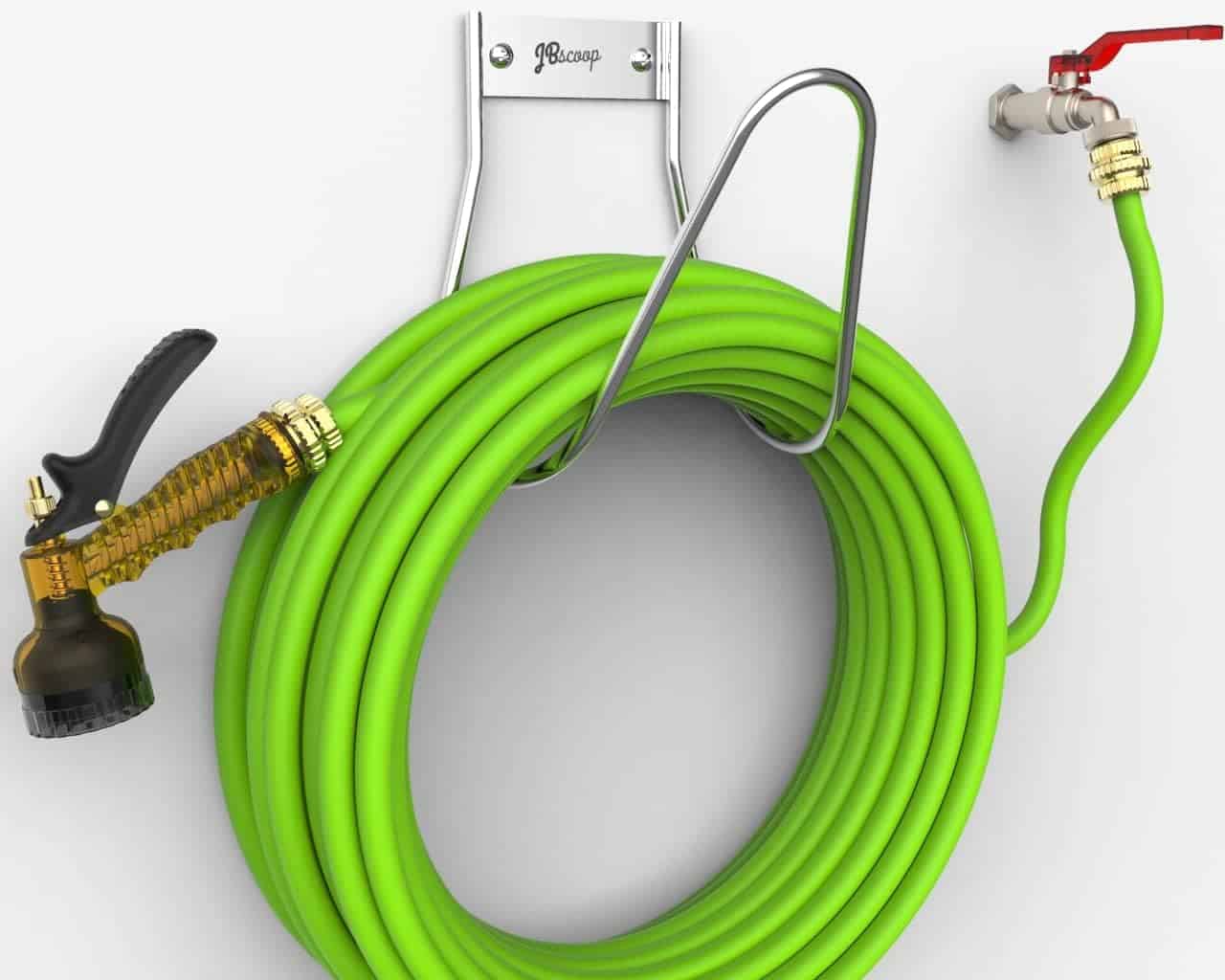 | 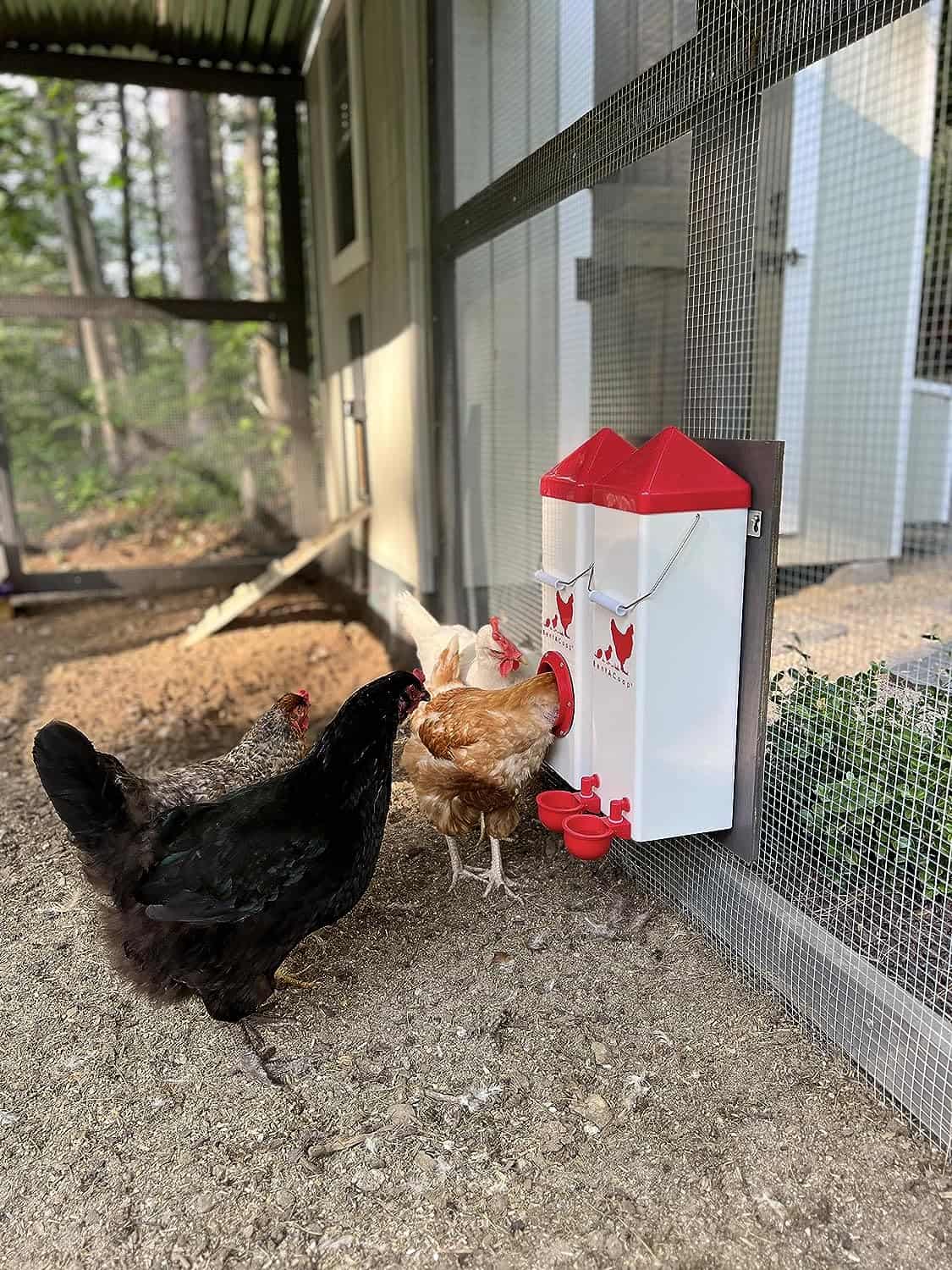 | 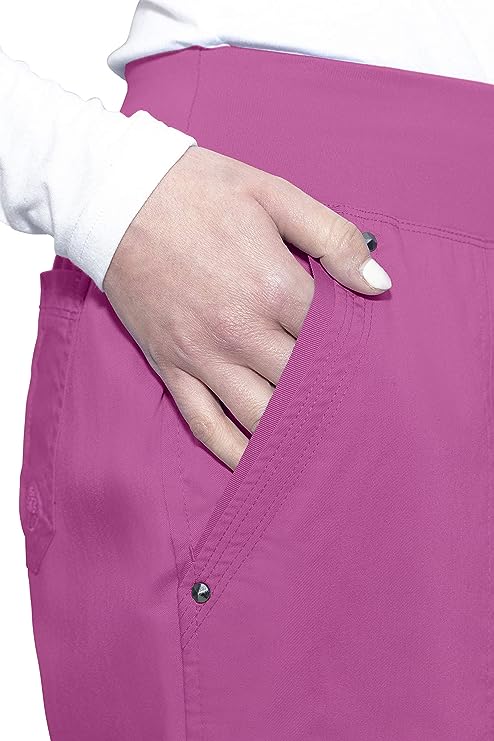 |
| Essential accessory for your coop | No more tripping over hoses! | Predator protection made easy | Comfort + style is possible |
What Happens If Humidity Gets Too High In An Incubator?
High humidity is a more common problem than low humidity, and it can have serious consequences for incubating eggs.
High humidity reduces the evaporation rate from the eggshell, and the egg does not lose weight, causing the chick to grow larger than usual.
Because the egg’s air cell is so tiny compared to the chick’s size, it will be unable to breathe properly and may suffocate. Along with that, the chick won’t be able to maneuver around the shell so it will have difficulty breaking it and may get stuck. This is why high humidity levels in the incubator result in a low hatch rate.
What Happens If Humidity Gets Too Low In The Incubator?
Low humidity occurs less frequently, especially in small incubators but it can be equally harmful to incubating eggs as the high humidity.
Low humidity will increase the evaporation rate and the egg will start to lose moisture and weight hence resulting in a large air space.
The chicks will be small, crippled, and weak upon hatching and have a low survivability rate. The eggshell will also stick to the body of the chicks due to low moisture and they might not be able to hatch on their own.
How Do I Keep The Humidity In The Ideal Range In My Incubator?
Unlike temperature, which is a strict parameter, humidity is more of an average parameter. If the temperature fluctuates even slightly, it can have disastrous effects on the incubating eggs; however, mild humidity fluctuations do not make a significant difference because they are within the average range.
If you don’t have an automatic system installed in the incubator, you can use the methods listed below to maintain the humidity in your incubator within the ideal range, but some of these will require monitoring regularly.
Petri dish or pie tin with water
Placing a petri dish, pie pan, or tray filled with water in the compartment beneath the eggs is the easiest and least expensive way to maintain a good level of humidity. The water in these containers will continue to evaporate, keeping the incubator humid.
Keep an eye on the humidity levels to ensure they are within the ideal range. If you assume that the humidity is on the low side, you can either make the water container larger or submerge a sponge in it to increase the water’s surface area, which will increase evaporation and raise the humidity.
Spraying water in the ventilation vents
The humidity in the incubator is significantly impacted by airflow. To maintain a balanced humidity level inside the incubator, you should spray some water in the ventilation vents if you live somewhere where the air has less moisture content.
Automatic humidity controller
The best method for keeping the humidity in incubators within the ideal range is to use automatic humidity systems.
These systems are outfitted with sensors that detect humidity levels in the incubator, as well as a water tank, pump, and atomizer that produces humidity in the incubator. These come in a variety of sizes and shapes, but they can be quite expensive. They are typically used in large commercial setups.
Weighing the eggs
Using this technique, you can get a general idea of the incubator’s humidity level. Overall, the weight of the eggs is influenced by the humidity, so when the humidity is high, the weight of the eggs will increase, and vice versa when the humidity is low. From the start of incubation to the day of hatching, chicken eggs will lose 10 to 15% of their weight.
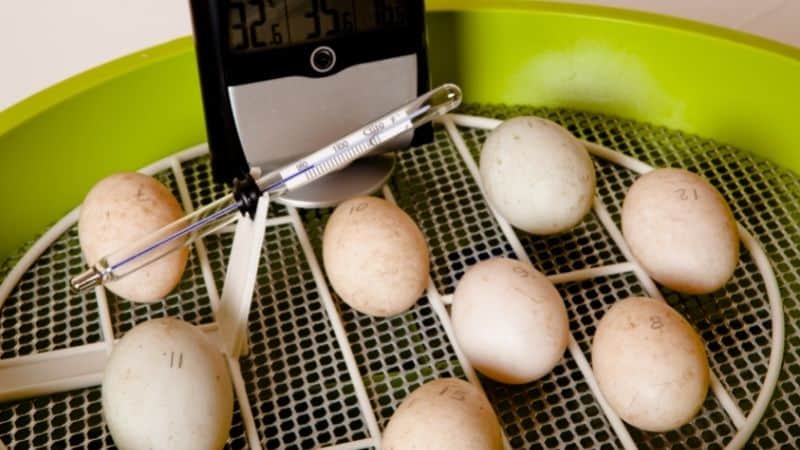
A chicken egg that weighs 68 grams on day 1 will weigh roughly 56 to 58 grams on day 21. Every few days, you can weigh the eggs to monitor weight loss and adjust the humidity as needed. You can use this graph as a guide to precisely adjust the humidity levels depending on the day of incubation and the weight of the eggs.
Decrease the airflow in the incubator
The humidity in the incubator has an inverse relationship with airflow. The greater the airflow, the lower the humidity because all of the water vapor will escape from the incubator.
If the humidity level in your incubator is very low, you should turn down the ventilation, but do so in an appropriate manner or the eggs will be deprived of oxygen and the embryos might very well die.
Recommended article: What Is The Dry Incubation Method For Chickens?
How Do You Measure Humidity In The Incubator?
Humidity in the incubator can be measured using a variety of techniques and instruments. Some of these techniques and instruments only provide an estimate of the humidity, whereas others can provide very accurate readings.
Condensation on the glass
If your incubator has a glass window, you can see the condensation of water on the inside of the window. The presence of condensation indicates that the incubator has a sufficient amount of moisture, but this method is only effective for the last three days (Day19 to Day21).
Additionally, it is not a reliable method of accurately measuring humidity because the temperature of the room where the incubator is placed can affect the amount of condensation that forms on the glass window.
Hygrometer
The hygrometer can be used to precisely measure the incubator’s humidity, but you should never try to save money on it. The most reliable and accurate hygrometers are typically the most expensive ones. Hygrometers come in both digital and analog varieties. To measure humidity, the hygrometer makes use of a phenomenon known as evaporative cooling.
Wet bulb temperature
This is a very less expensive way to measure the humidity in the incubators since it only requires a thermometer and moist cotton. The tip of the thermometer is known as its bulb.
Moist cotton is wrapped around the bulb and as the moisture evaporates from the cotton it causes a cooling effect on the bulb hence wet temperature will be calculated. The humidity is determined by calculating the difference between the wet bulb temperature and the dry bulb temperature.
What Factors Affect The Humidity Of Incubating Eggs?
Following are the factors that greatly influence the humidity in the incubators:
Egg size
If the egg size is small there will be more loss of moisture hence an increase in the humidity will be observed.
Porous shell
The hens start to lay more eggs with porous shells as they get older. The number of pores in the eggshell affects how easily water molecules can enter and exit the egg, which in turn affects the humidity.
Shell thickness
Shell thickness decreases with the age of the hen and has a great impact on the humidity in incubators since thin-shelled eggs need a more humid environment than thick-shelled eggs.

Incubation temperature
If the incubation temperature is hot it will increase the evaporation of water hence increasing the humidity and vice versa.
Airspeed
High airspeed tends to decrease the humidity in the incubators whereas if the airspeed is slow humidity will increase.
Position of the egg
If the eggs are placed pointy side down then the air space in the egg is facing the ceiling. As the egg loses moisture the air space at the top will increase.
Weather
If the weather is hot the humidity inside the incubator will mostly be on the higher side and if it is cold and dry the humidity will decrease.
Should I Spray My Eggs With Water During Incubation?
Although it’s a very common practice among chicken owners, I won’t recommend you to do it because it could cause problems for the developing chicks. Water spraying on the eggs may cause temperature fluctuations, resulting in a poor hatch. The other explanation for this is that water droplets may cover the egg’s surface and impede the exchange of gasses.


